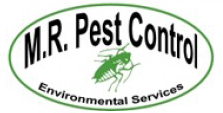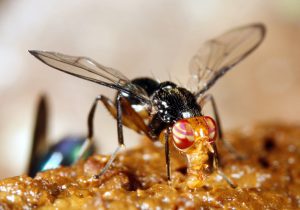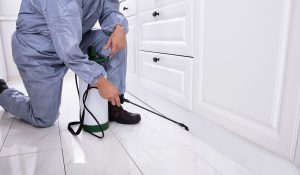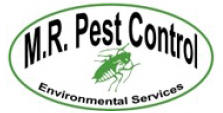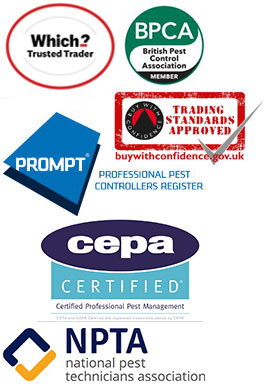Flies buzzing can be a real pain and a threat to health. This article looks at ways to tackle fly infestations in London. Be it for homeowners or business owners, it’s vital to take action quickly and effectively. This helps to create a clean and safe living/working space.
Why is controlling flies important? Not only are they annoying, but they also carry harmful bacteria and pathogens. This can cause illnesses like typhoid fever, cholera, and dysentery. So, it’s essential to take steps to prevent these risks.
What are some methods to control flies?
- Keep areas clean – dispose of waste and mop up spills.
- Install screens on windows and doors – this stops them from entering.
- Use insecticides or DIY traps – to get rid of existing populations.
Pro Tip: Consider getting help from pest control specialists. They know the best ways to treat and prevent future infestations.
Understanding the importance of fly control in London
Flies can be a real pain in London. It’s essential to understand why fly control is important. These insects don’t just cause disturbances; they can spread diseases too. We need effective measures to maintain hygiene and keep our living environment safe.
Methods for controlling flies have been developed. One way is using insecticides and repellents which are designed to target flies. This reduces their numbers and stops them from infesting our space. Keeping clean and managing waste properly can reduce fly attraction.
Plus, flies reproduce quickly. A single female can lay hundreds of eggs in no time. We must take action fast to avoid an infestation.
In the past, London had flight problems due to its population and urban setting. Poor waste disposal caused high fly numbers in some areas. Sanitation practices and waste management rules were improved, leading to better control over the flies.
Fly control is more than an irritation. It’s about public health too. By taking steps and staying on top of cleanliness, we can help make London a safer and nicer place for everyone.
Identifying common types of flies found in London
The common types of flies found in London can be identified based on their distinctive characteristics and habits. These flies include the House Fly, Bluebottle Fly, Fruit Fly, and Cluster Fly.
The following list provides a concise overview of the four common fly types and their distinguishing features and habits.
House Fly
- Characteristics: Small and grey
- Habits: Infests houses
Bluebottle Fly
- Characteristics: Metallic blue colour and buzzing sound
- Habits: Attracted to decaying matter
Fruit Fly
- Characteristics: Small and brown
- Habits: Found near fruits and vegetables
Cluster Fly
- Characteristics: Dark grey colour
- Habits: Clusters in buildings
Additionally, it is worth noting that House Flies are known for spreading diseases as they feed on various sources of filth including garbage and faeces. Bluebottle Flies, on the other hand, are attracted to decaying organic matter and can often be found near dead animals or food waste. Fruit Flies are commonly found near fruits and vegetables, while Cluster Flies tend to cluster in buildings during colder months.
In addition to these common types, there are various other species of flies found in London with unique characteristics, making fly control in the city quite a challenge.
One such incident involved a local restaurant struggling with a fruit fly infestation. Despite their best efforts to maintain cleanliness and proper disposal of fruits and vegetables, the flies seemed to persist. It was eventually discovered that the flies were entering through a small crack in a window, which was promptly sealed. This incident highlights the importance of thorough inspection and preventative measures in fly control.
Understanding the types of flies found in London is crucial in developing effective strategies for fly control. By identifying their characteristics and habits, individuals and businesses can take appropriate measures to keep their premises fly-free.
House flies: the uninvited guests that make you question the cleanliness of your home and wonder if you accidentally stumbled into a Hitchcock film.
House flies
House flies are notorious for their fast reproduction and short life cycles. This lets them quickly spread throughout an area. They’re drawn to decaying organic matter, like trash or waste. They consume it and contaminate it in the process. Plus, they can transmit diseases. As they sit on surfaces, including food and dishes, they can spread germs.
Kitchens and other food-related areas are where these bugs are most often seen. Staying on top of cleanliness and proper waste disposal can help avoid infestations.
A smart way to handle house flies is to use natural repellents like essential oils or fly traps. These can be effective in warding them off, without having to use harsh chemicals.
Fruit flies
Fruit flies stand out due to their brief reproduction cycle. A female can lay up to 500 eggs at once! These eggs hatch within hours into larvae. They feed on decaying fruits.
Surprisingly, fruit flies have a great sense of smell. They can detect the tiniest scent of ripened fruits from a distance. This trait has made them an annoyance in kitchens and fruit markets.
To avoid an infestation, throw away rotting fruits and keep countertops clean. These simple steps can stop fruit fly problems and the health risks that come with them.
So, when you see a tiny insect near your fruits, don’t ignore it. Take action to avoid any potential breeding grounds and protect your home. Prevention is better than dealing with an infestation.
Cluster flies
Cluster flies have a unique trait: they are not dangerous to humans or animals. No illnesses or property damage is caused by these flies. They are more of an annoyance than a hazard.
The term “cluster flies” comes from their habit of bundling up in large groups during the colder seasons. Wintertime means these flies look for protection inside, often hiding in attics, basements, or wall voids. This is thought to shelter them from the frigid weather.
The dangers and health risks associated with flies
Flies may seem harmless, but they can cause big problems. Not only are they annoying, but they can spread diseases too. It’s important to understand the dangers of flies.
Flies can carry a variety of diseases, e.g. cholera, typhoid fever, dysentery, and salmonella. They pick up germs from things like waste, faeces, and contaminated surfaces. This puts us in danger of getting sick if we touch or eat something contaminated.
Flies breed quickly and can gather in large groups. They thrive in places full of organic matter, like bins, drains, and sewers. Left unchecked, fly numbers can grow quickly, increasing the risk of disease.
Flies can also cause allergies. When they land on us, or things we touch later, they leave bits of saliva or poo. People sensitive or allergic to these can get itchy skin, rashes, or breathing issues.
To keep safe, we need to control flies. Cleaning and maintaining our surroundings can help get rid of places where flies live. Keeping food covered and sealed stops them from contaminating it. Installing fly screens stops them from coming into our homes.
Act now to stay healthy. Implementing fly control measures keeps us safe from disease. By being aware and taking action, we can keep flies away and enjoy a healthier life.
Tips for preventing and controlling flies in your home or business
Flies can be an irritating nuisance in both homes and businesses. To prevent and control these pesky insects, here are some helpful tips:
- Keep doors and windows closed as much as possible to prevent flies from entering your premises.
- Install screens on windows and doors to allow fresh air in while keeping flies out.
- Regularly empty and clean bins to avoid attracting flies with food waste.
- Ensure that all food is properly stored in sealed containers to discourage flies from landing on it.
- Maintain cleanliness by regularly cleaning surfaces and disposing of any spilt food or drinks.
- Consider using fly traps or fly repellents to control the fly population.
In addition to these tips, it’s important to address some unique details worth mentioning. Flies are particularly attracted to pet waste, so make sure to clean up after your pets promptly. It’s also beneficial to inspect your premises for any potential entry points, such as gaps or cracks, and seal them properly.
Now, let’s share a true story to emphasize the importance of fly control. Jane, a restaurant owner in London, was struggling with a recurring fly problem. Customers were starting to complain, and it was affecting her business. Desperate for a solution, she reached out to a professional fly control company. With their expertise, they identified the root cause, implemented preventive measures, and successfully eliminated the fly infestation. Jane’s restaurant is now fly-free, and her business is thriving once again.
By following these tips and considering the experience of others, you can effectively prevent and control flies in your home or business. Remember, a proactive approach to fly control is key to maintaining a clean and hygienic environment. Cleaning up after flies is like playing a never-ending game of ‘whack-a-mole’ with a mop and bucket.
Maintaining cleanliness and proper sanitation
To combat flies, start with the basics: keep all areas clean and free from food debris and spills. Dispose of garbage and seal trash cans. Clean pet waste and organize food storage containers. Clean drains regularly and create a cleaning schedule, focusing on hard-to-reach places.
There are also unique details to consider, such as fly screens on windows and doors, and ultraviolet light traps. Invest in sticky fly traps or insecticides, or use natural remedies like essential oils with strong scents. Maintain proper ventilation as flies prefer stagnant air. Ensure windows and vents are functioning properly.
These measures will help you reduce the presence of flies while maintaining cleanliness and hygiene. Prevention is key!
Sealing entry points and cracks
- Inspect doors and windows for gaps or cracks. Seal these with weather strips or caulking.
- Check screens for tears or holes and repair/replace if necessary.
- Secure utility lines and pipes with sealants or fillers.
- Seal vents and exhaust fans with mesh screens.
- Maintain seals on doors and windows to keep flies out.
- Install fly screens on windows and doors for an extra barrier.
- Look for the smallest crack or gap, as these can be invitations for flies.
- A study by the University of California Agriculture & Natural Resources found that sealing entry points is an effective method for reducing fly populations indoors.
- Take proactive measures to seal entry points and improve overall fly control.
Using fly traps and baits
Eliminating flies can be tricky! Fly traps and baits are a great way to control them. Place these tools in areas near windows, garbage bins and outdoor dining spots. That way, flies will be attracted to the traps and baits.
Fly traps usually have sticky surfaces or containers with enticing liquids or gels. These substances give off smelly odours that lure flies and make them stuck. Baits often contain ingredients that smell like rotting food or animal waste, something flies love!
Also, proper hygiene is important. Clean up spills, seal trash cans and ensure good drainage in outdoor places.
Did you know? A study in the Journal of Economic Entomology showed that fly traps can reduce housefly populations by 57-93%! So, don’t wait! Use fly traps and baits to keep your home or business fly-free!
Employing professional pest control services
Professionals guarantee safe and correct treatment for fly infestations. They have the know-how to detect the issue and use suitable methods. Moreover, these experts apply eco-friendly techniques and products not hazardous to humans or animals. Outsourcing the pest control task saves time and effort too.
These specialists possess a broad range of treatments designed for different types of flies. Their deep knowledge of fly behaviour allows them to find breeding or congregating spots for better control. Thus, professional pest control services provide a comprehensive and long-term solution.
Regular inspections are essential for early detection of any signs of fly activity. Cleanliness is key, both indoors and outdoors, to reduce fly populations. Waste management must be effective too. Finally, fly screens on doors and windows prevent them from entering.
By engaging professional pest control services and following these tips, you can successfully prevent and control flies in your residence or workplace. Their expertise and proactive measures create a healthier environment.
Natural remedies for fly control in London
London is a vibrant and bustling city, but along with its charm comes the annoyance of flies. If you’re looking for natural remedies to control these pesky pests, you’re in the right place. With a blend of creativity and effectiveness, these methods will help you maintain a fly-free environment in London.
To tackle fly control in London naturally, consider using essential oils such as lavender or eucalyptus. These oils have powerful scents that fly find repulsive, making them an effective deterrent. Simply mix a few drops with water in a spray bottle and apply it to areas where flies tend to gather, such as windowsills or door frames. Not only will your home smell fresh, but you’ll also keep those bothersome flies at bay.
Another natural remedy to consider is the use of fly traps. These traps utilize natural bait, such as fruit or sugar, to attract flies and trap them. The traps are designed to be non-toxic and safe for use in homes, making them an ideal option for fly control in London. Place them strategically around your house to catch flies and reduce their numbers.
Additionally, maintaining good hygiene practices is essential in fly control. Flies are attracted to areas with food residue or waste, so it’s important to keep your kitchen clean and dispose of rubbish regularly. Make sure to seal any gaps or cracks in windows and doors to prevent flies from entering your home. By eliminating their food sources and blocking their entry points, you’ll effectively reduce the presence of flies in your London abode.
Essential oils are the only thing that can make flies question their life choices and reconsider their career as annoying pests in London.
Essential oils
Lavender oil is one such essential oil that wards off flies. It has a pleasant aroma that humans enjoy, but flies don’t. Diffusing lavender oil in and around your home can create a fly-free zone without harmful chemicals.
Citronella oil is also effective. It comes from a type of grass native to Asia and emits a strong scent that flies don’t like. Use it in candles or diffusers to keep flies away during outdoor events or barbecues.
Tea tree oil deters flies and disinfects surfaces. It has antiseptic properties and a distinctive fragrance. It’s great for kitchen countertops or trash bins where flies gather.
In ancient times, Egyptians used peppermint and eucalyptus to protect their homes from flies and other pests. The strong aromas kept the insects out. This shows the effectiveness of natural remedies in fly control.
Essential oils are natural and pleasant-smelling. They repel flies and have additional benefits. Incorporate them into your pest management strategy to enjoy a fly-free environment without harsh chemicals or pesticides.
Homemade fly repellents
Fly control is a major concern in London. Luckily, homemade fly repellents offer a natural solution! These repellents are effective without the use of harmful chemicals.
One option is to mix essential oils like peppermint, lavender and eucalyptus. These oils have strong scents that flies don’t like. Mix a few drops of each oil with water in a spray bottle and apply it where flies gather.
Vinegar is another great repellent. Flies hate the smell, so place bowls or jars of vinegar around your home. Create an apple cider vinegar trap by pouring vinegar into a jar and covering it with plastic wrap. Poke small holes in the wrap, which will attract flies but they won’t be able to escape.
Cloves are also effective. Flies don’t like the scent, so hang bundles of dried cloves near windows and doors. Boil cloves in water and use the liquid as a spray around your home.
In the past, people used bags filled with water to scare away flies. The sunlight reflecting on the bags created an illusion that kept the flies away.
Fly control methods for outdoor areas in London
Fly control in outdoor areas is crucial in London, where the presence of flies can be a nuisance and a potential health hazard. To effectively tackle this issue, various methods can be employed.
- Traps and Baits: Using fly traps and baits is an effective fly control method. These devices attract flies with a lure and trap them, preventing further infestation.
- Ultraviolet Light Traps: UV light traps are designed to attract flies with their light source and capture them with a sticky board or electric grid. They can be especially useful in outdoor areas with high fly activity.
- Fly Screens: Installing fly screens on doors and windows is a preventive measure that keeps flies out of outdoor spaces. These screens allow fresh air to flow while acting as a barrier against flying insects.
- Proper Waste Management: Flies are attracted to waste and organic matter. Implementing effective waste management practices, such as regular collection and proper disposal, can significantly reduce fly breeding sites.
- Natural Repellents: Some natural ingredients, like essential oils or herbs, have repellent properties that can discourage flies. Applying these natural repellents in outdoor areas can help keep flies at bay.
- Fly Control Services: Employing professional fly control services can be a comprehensive solution. These services utilize advanced techniques like insecticide spraying and fogging to eliminate flies effectively.
In addition to these methods, keeping outdoor areas clean and removing any potential food sources for flies is essential. Regular maintenance and inspections help ensure maximum effectiveness in fly control efforts.
It’s interesting to note that flies have been found to carry over 100 different pathogens, including bacteria, viruses, and parasites. According to the World Health Organization (WHO), flies are known vectors for diseases such as cholera, dysentery, and typhoid fever. Therefore, implementing effective fly control methods is crucial for maintaining a healthy and hygienic environment in outdoor areas of London.
Sources:
- World Health Organization (WHO) – www.who.int
Every time you dispose of your waste properly, a fly gets its wings clipped.
Proper waste management
Regular bin collection and disposal is essential to stop waste from accumulating. Segregating different kinds of waste reduces the risk of attracting flies. Biodegradable bags or bins with tight-fitting lids help contain odours and avoid fly infestations. Encouraging recycling also aids in proper waste management, reducing total waste production. Cleaning outdoor bins often and keeping nearby areas tidy are key preventive measures.
Moreover, it’s critical to remember that proper waste management is more than just discarding home waste. Commercial sites, parks, and public spots must also set up efficient waste disposal systems.
To further decrease flies, consider putting insect-proof screens on external drains and guaranteeing efficient drainage maintenance in outdoor zones.
A great illustration of the significance of proper waste management is a local park in London. The park authorities introduced regular bin rotations and ran awareness campaigns about appropriate waste disposal. Consequently, the number of flies drastically declined, creating a cleaner atmosphere for visitors to enjoy.
Regular maintenance of gardens and outdoor spaces
Maintaining gardens and outdoor spaces is vital for keeping them neat, orderly, and attractive. It guarantees the endurance of plants, avoids the spread of pests, and increases the overall allure of the area.
To guarantee effective garden upkeep, here are some proposals:
- Apply bug control measures: Use organic pesticides or natural remedies to regulate insects and pests without harming beneficial organisms. Utilize strategies, such as companion planting or using sticky traps.
- Form a composting system: Recycling organic waste into nutrient-rich compost can minimize landfill usage while offering valuable nourishment to plants.
- Recruit professional help if needed: In case of massive garden maintenance requirements or lack of time, hiring experienced gardening services can provide expert assistance in keeping outdoor spaces efficiently.
These suggestions function by tackling specific troubles. Pest control measures stop infestations from destroying plants. Composting enriches the soil with nutrients, encouraging healthy plant development. Recruiting professionals guarantees expert care that comprehends the exceptional requirements of gardens.
In short, routine maintenance of gardens and outdoor spaces plays an essential role in guaranteeing their health and beauty. By following these suggestions and paying attention to specific details, one can enjoy a well-maintained outdoor area that is both visually attractive and ecologically friendly.
Installing fly screens and netting
- Measure the dimensions of your windows or doors where you’re installing the fly screens or netting. Get an exact fit to prevent any gaps for flies.
- Clean the surfaces first with a mild detergent and water solution.
- Securely attach the screens or netting using screws or adhesive strips.
- Check and maintain them, plus replace them when needed.
Did you know? The Journal of Vector Ecology states fly screens reduce indoor fly populations by 80%!
Conclusion
To wrap it up, controlling flies in London is an essential step for keeping clean and not letting diseases spread. Consider these three points:
- Efficient Pest Control: Professional measures to tackle flies are needed. This includes things like insecticides, traps, and proper waste management which can decrease their numbers.
- Health and Safety: Flies have bacteria which can contaminate food and surfaces. This is a danger to humans and can cause sicknesses like diarrhoea, typhoid, and dysentery.
- Expert Knowledge: Ask a pest control specialist for help to get a proper inspection and treatment plan. Their experience with fly behaviour and techniques to eliminate them will help achieve a fly-free environment.
Also, ensure proper sanitation in garbage areas, and keep doors and windows shut for extra fly-prevention. Don’t delay; contact a professional pest control service now for a better and safer future!
Frequently Asked Questions
- How can I control fly infestations in London?
London has various methods for fly control, such as using insecticides, and fly traps, and ensuring proper sanitation to eliminate breeding grounds. Hiring professional pest control services is also an effective solution.
- Are fly infestations common in London?
Yes, fly infestations can be a common issue in London, especially during warmer months. Factors such as urban environments and waste management can contribute to an increase in flies.
- What are the health risks associated with fly infestations?
Flies can carry bacteria, viruses, and other pathogens on their bodies, potentially spreading diseases to humans and animals. Common health risks include food contamination and the transmission of diseases like cholera and dysentery.
- How do professionals control fly infestations?
Pest control professionals in London are trained to identify the source of infestations and use targeted treatments to eliminate flies. They may employ insecticides, fly baits, fly traps, or implement preventive measures to deter future infestations.
- Can I prevent fly infestations in my home?
Absolutely! To prevent fly infestations, ensure proper sealing of doors, windows, and vents. Regularly clean and dispose of waste, keep food covered, and maintain good sanitation practices. It is also helpful to install screens on windows and use fly repellents.
- How long does it take to control a fly infestation?
The time required to control a fly infestation depends on the severity and extent of the problem. Professional pest control measures typically show significant results within a few days to a couple of weeks.
